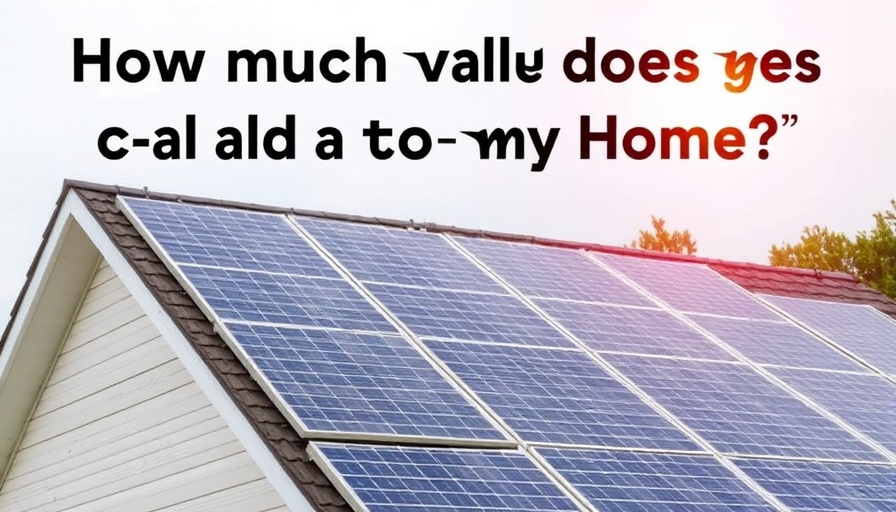
Understanding Solar Value: What Homeowners Need to Know
For homeowners looking to lower energy costs while also increasing their property value, the question of how much solar panels can augment a home's worth often arises. While many are aware of the potential long-term savings on energy bills, the correlation between solar installation and increased home value is less commonly understood.
The Financial Impact of Solar Panels
Studies indicate that solar panels can indeed boost a property's value. A widely recognized report from the Solar Energy Industries Association (SEIA) suggests that homes with solar installations often sell for more than those without. Specifically, it reports that solar can increase a home's sale price by an average of $15,000. This figure can vary by region, homeowner demographics, and local market trends.
Energy Savings vs. Home Value Appreciation
Although a solar installation can enhance a home’s market value, it's vital to consider the immediate cost savings on monthly energy bills. Homeowners may report reductions of around 50-80% in energy costs depending on their regional climate and energy consumption patterns. Yet, for potential buyers, the allure of energy-efficient homes is becoming an increasingly important factor.
Local Market Trends: What You Should Know
The extent to which solar panels increase home value can depend significantly on local market trends. In areas with a higher demand for eco-friendly properties, such as California and parts of the Northeast, the return on investment (ROI) for solar panels can be quite significant. Conversely, in regions where traditional energy sources dominate, potential benefits may be less pronounced.
Counterarguments: Assessing the Solar Investment Risks
It's essential to weigh the benefits against the risks associated with investing in solar panels. Some homeowners may be deterred by initial costs and the payback period after installation, usually around 5 to 10 years. Additionally, not all homes are suitable for solar installations. Factors like roof orientation, shading from trees or buildings, and local zoning regulations can impede solar effectiveness and thus influence market value.
Current Events: Amid Rising Energy Costs
Given the rising energy costs and increasing awareness of the environment, demand for home solar installations has surged. With more countries enforcing strict energy regulations and promoting renewable energy sources, this trend is only expected to continue. Investors should keep an eye on emerging policies that could further incentivize renewable options, thus potentially impacting their home's market value.
A Broader Look at Sustainability
Beyond financial considerations, homeowners should also consider the emotional and ethical implications of investing in renewable energy. Solar installations not only contribute to cost savings and property value but also forge a responsible path toward sustainability. This angle can resonate deeply with eco-conscious buyers who prioritize environmentally friendly homes.
Final Thoughts: The Value of Knowledge
Understanding the nuances of how solar adds value to your home can empower you not only to make informed decisions about your investments but also to enhance the livability and future resale potential of your property. As energy costs rise and the push for sustainable solutions grows, the choice to go solar likely presents both financial benefits and ethical satisfaction.
For homeowners and investors alike, educating oneself about current market trends and the tangible benefits of solar can illuminate a path to both financial and environmental stewardship.
 Add Row
Add Row  Add
Add 



Write A Comment